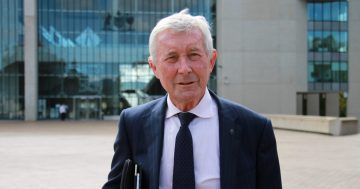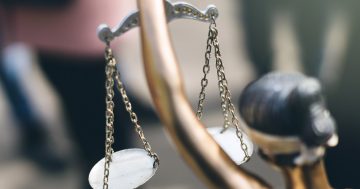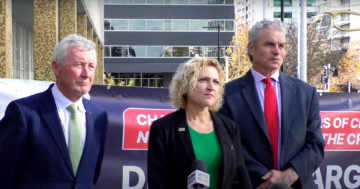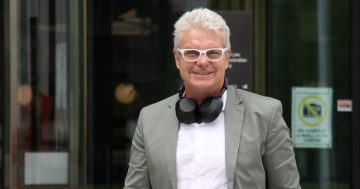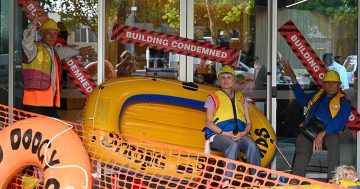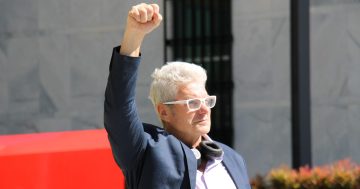
Bernard Collaery has launched a two-day appeal in an attempt to overturn an order made to keep much of his trial secret. Photo: Collaery + Partners.
Whistleblower Bernard Colleary has launched a legal appeal to overturn orders made to hold much of his upcoming trial behind closed doors.
However, in a case that is often criticised for being shrouded in secrecy, the ACT Court of Appeal matter was closed to the public, including media, only a few minutes after it began on Monday (17 May).
Mr Collaery was the lawyer for Witness K, who blew the whistle in 2012 over Australian intelligence services bugging the Timor-Leste cabinet room during 2004 discussions over the Timor gas treaty.
The Human Rights Law Centre (HRLC) said Australia and Timor-Leste signed a revised energy treaty in 2018 after Timor-Leste began legal proceedings in the International Court of Justice and Permanent Court of Arbitration over the incident.
Mr Colleary is fighting charges relating to allegedly breaching the Intelligence Services Act. The HRLC said Witness K, an ex-intelligence officer, has indicated he will plead guilty to a summary offence.
The two whistleblowers have attracted widespread support, including from several of Canberra’s political leaders.
On Monday morning, Member for Canberra Alicia Payne, Member for Bean David Smith, Member for Fenner Andrew Leigh and ACT Senator Katy Gallagher released a joint statement objecting to the treatment of Mr Collaery and Witness K by the federal government.
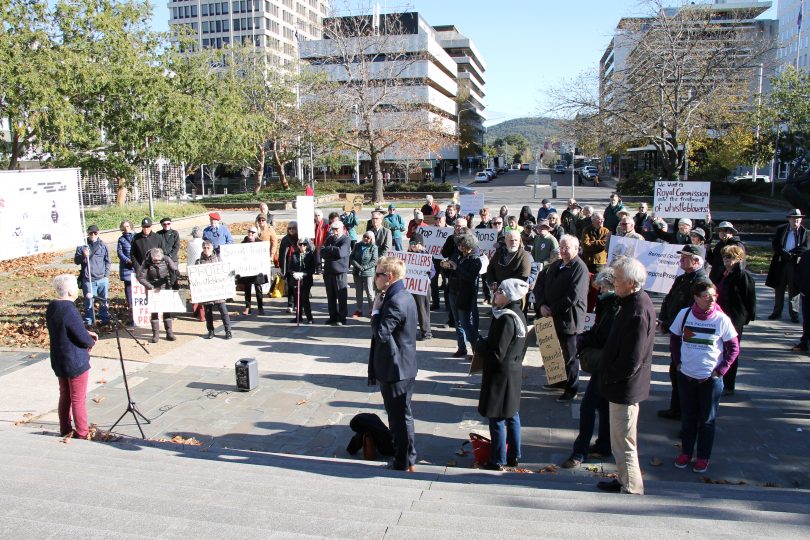
Protesters gather outside the ACT Courts on Monday in support of Bernard Collaery and Witness K. Photo: Albert McKnight.
“The way in which the Morrison Government has dragged out legal proceedings in the ACT Supreme Court is unjust,” the four Labor parliamentarians said.
“They must explain why it is in the public interest to proceed with these prosecutions.
“From trying to effectively prevent Mr Collaery from choosing his own legal counsel to closed courts and delaying tactics, the Morrison Government has gone to absurd lengths to pursue these prosecutions.”
READ MORE: Canberra judge blasts ‘unfair’ federal government delay in Bernard Collaery case
In March, Ms Payne said that, so far, the prosecution of Witness K and Mr Collaery had cost taxpayers almost $4 million.
There was also in-person support for the whistleblowers outside the ACT Courts on Monday, as a large crowd gathered to protest against the government’s decision to prosecute the two.
HRLC senior lawyer Kieran Pender said the prosecutions were “wrong and unjust”, and he wanted to talk about solutions to ensure court cases like this did not happen again.
He said the Commonwealth Director of Public Prosecutions could drop the charges against the two at any moment.
“I think all of us would agree that there is no public interest in prosecuting whistleblowers such as Bernard Collaery and Witness K,” he said.
He said Australia had a long and innovative history around protecting whistleblowers but was unfortunately now “behind the eight-ball” compared to the US and European Union.
“Our laws are no longer up to global standard and they are not working in practice. It’s all well and good to have rights on paper, but they’re not translating into rights in reality,” Mr Pender said.
“We have an insane situation right now that those who speak up about corporate wrongdoing have better protections in law than those who speak up about government wrongdoing. That cannot be right.”
He said a very practical step the government could take to ensure prosecutions like those against Witness K and Mr Collaery never happened again would be to improve laws that protect those who speak up.
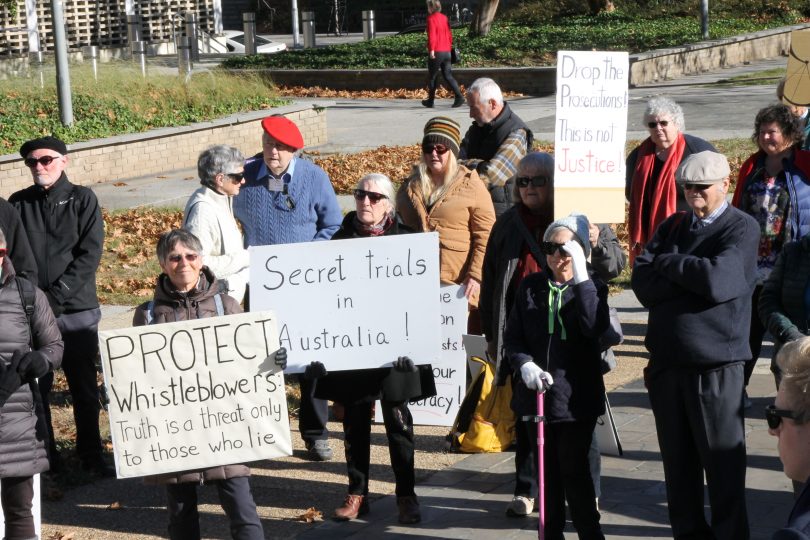
Protesters gather outside the ACT Courts on Monday in support of Bernard Collaery and Witness K. Photo: Albert McKnight.
Civil Liberties Australia president Dr Kristine Klugman told the protesters the two whistleblowers should not be before the criminal courts.
“They should be at Government House in Yarralumla receiving medals,” she said.
She said an overhaul of whistleblower protection laws had been promised by both Liberal and Labor politicians for years, “but when in power, neither side delivers. They become more secret, more opaque”.
She said Australia should introduce the qui tam laws that applied in the US.
The National Whistleblower Centre says qui tam allows persons and entities with evidence of fraud against federal programs or contracts to sue the wrongdoer on behalf of the United States Government.
Dr Klugman said the laws meant whistleblowers could be rewarded for speaking out.
The HRLC said Mr Collaery’s two-day appeal would be fighting an order made under the National Security Information (Criminal and Civil Proceedings) Act 2004 to hold his trial largely behind closed doors.
Witness K’s case will next appear before the courts on 3 June.












